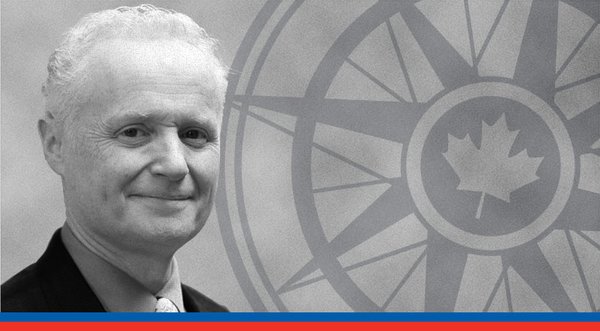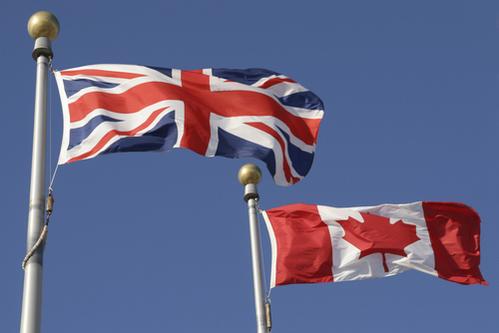With all the talk recently in the new about of corporate taxes, and the companies whose tax bills seem low, I argue in today’s G&M, that the idea of simply increasing corporate taxes to increase government revenue, so public spending can flourish is not as straightforward as many believe, and may in fact have the opposite effect.
Government tax chasers should worry about profits first
Brian Lee Crowley, Special to the Globe and Mail, May 30, 2013
If something sounds too good to be true, chances are it is.
A case in point is the argument making the rounds that there are vast pools of untaxed or undertaxed corporate profits floating around. If we could plug all the tax leaks, we would suddenly make deficits disappear and public spending could flourish.
Amazon, Apple and Starbucks are some of the companies fingered for “aggressive” tax strategies. Stung by criticism, Starbucks, which under the tax rules made no profits in the United Kingdom, nonetheless offered to pay £20-million ($31-million) in “voluntary” corporation tax to Britain’s Revenue and Customs. To allow the government to accept the money (tax payments are by definition not “voluntary”) will probably require Starbucks not to deduct some royalty payments made to its Dutch division. But British tax authorities have already examined those royalties and found them legitimate. And the Dutch government may have something to say about losing any tax revenue it collects on these payments.
It has been suggested that Starbucks avoid the legal difficulties and make a charitable contribution of that amount – except charitable donations reduce your tax payable, which was the complaint against Starbucks in the first place.
That is just a tiny window on the complexity of the international tax system in which countries vie with each other for the right to tax corporate profits. One country’s tax “loss” is often another’s “gain.” The idea that there are vast untaxed sums out there that can easily be found and taxed is mostly fanciful, although there are doubtless exceptions.
This does not mean Canada shouldn’t take steps to ensure it gets a reasonable share of corporate tax revenues. The main guiding principle should be that Canada needs to create conditions in which companies find it worthwhile to carry on their profitable business activities here.
Many people believe that corporate tax revenues are the simple result of multiplying the tax base (in this case, corporate profits) by the tax rate. As Amazon, Apple and Starbucks illustrate, however, that corporate tax base is immensely fluid. You manufacture here, have your head office there, centre your distribution activities in another place, lodge your intellectual property in another, borrow here, invest there and soon your business activities are a globe-girdling web that defies simple attribution to one national revenue agency or another.
Just a few years ago, the world’s 40 largest multinational companies had more than half their work force in countries other than where their head office was located, and earned nearly 60 per cent of their revenues from abroad. Those trends have surely intensified since. Defining where economic activity takes place, and therefore the taxes payable on it, is difficult to define with precision.
This all adds up to the economic truism that if you tax something, you’ll get less of it, and the harder you tax it, the less you’ll get of it. The complexity of global business multiplied by the complexity of tax rules means that companies have a lot of discretion about where their income ends up. We should be encouraging them to use that discretion in favour of Canada.
The greatest determinant of corporate income tax revenue is not the tax rate on that revenue, but rather the overall profitability of Canadian business. Business profitability drives investment, job and income growth. So our objective should be to attract profit to Canada so it can be put to work. One of the most effective ways of doing that is by keeping the tax on profits moderate.
For example, federal nominal corporate income tax revenues increased, on average, by almost 10 per cent between 2001 and 2006 even though the corporate income tax rate declined to 21 per cent from 27 per cent over that period. There might not be a simple linear relationship between corporate tax rates and revenues, but it is clear that profitability drives investment, jobs and growth while high corporate tax rates lower profitability.
Profit enlarges almost every part of the tax base. If Canada creates a climate favourable to profit and investment, it will get more of them. The tax revenue will follow.
Brian Lee Crowley is the managing director of the Macdonald-Laurier Institute, an independent non-partisan public policy think tank in Ottawa.
————————————-
Join me and Armine Yalnizyan, senior economist at the Centre for Policy Alternatives for a post-debate townhall after tonight’s Munk Debates “Be it resolved: Tax the rich (more)“. Recently Armine Yalnizyan and William Watson, economics professor at McGill University debated “Does wealth in Canada have to much power?” You can read the summaries of each of their arguments here; and visit www.cpac.ca to watch this and previous Great Canadian Debates.


